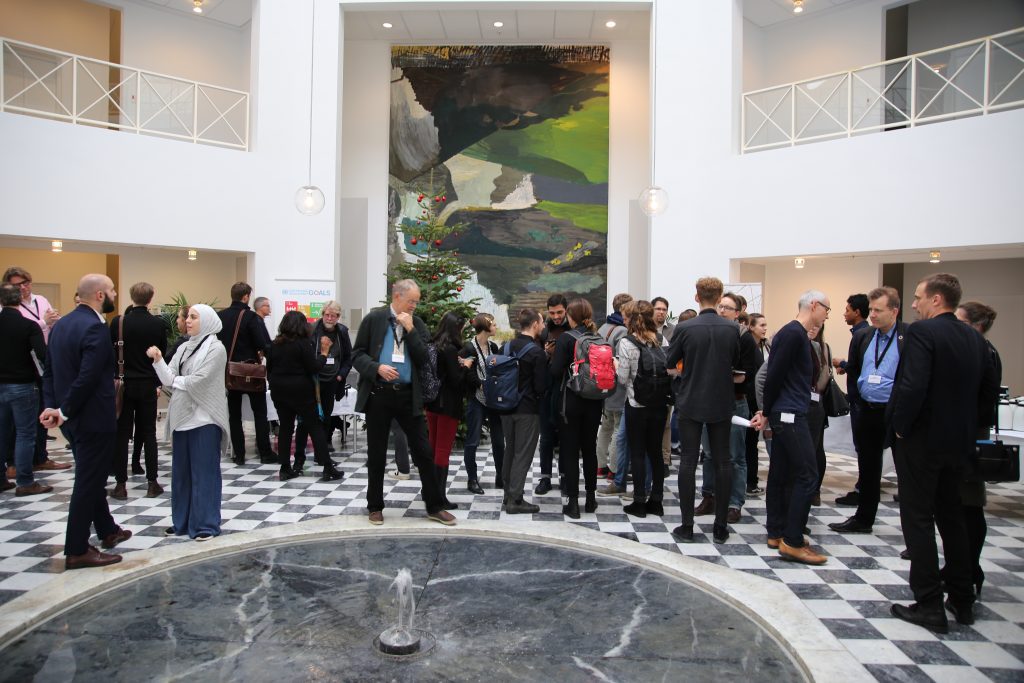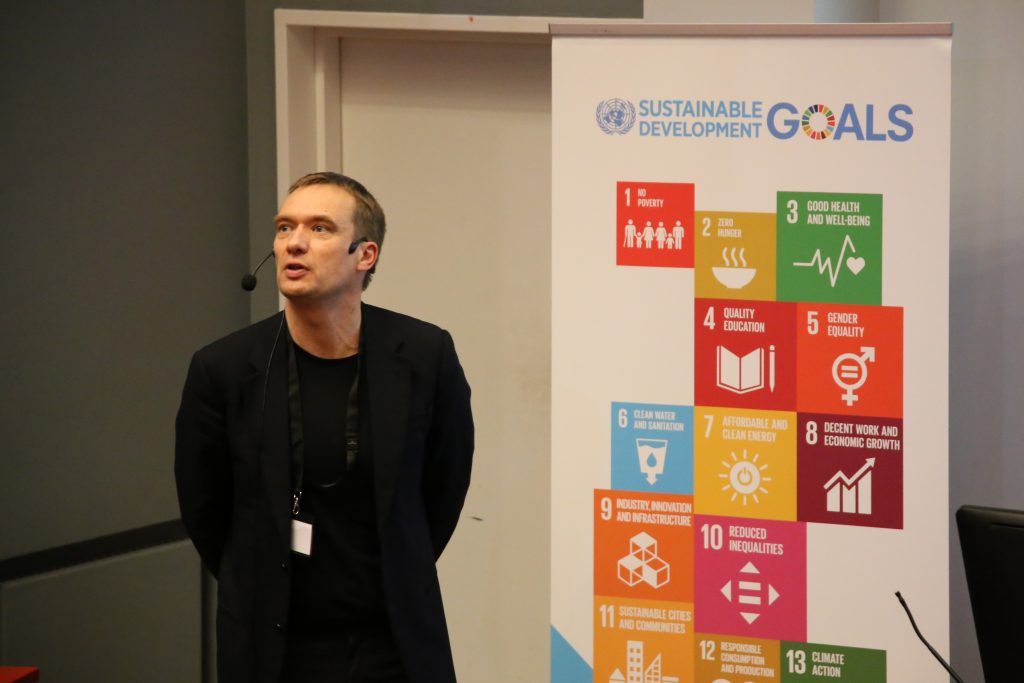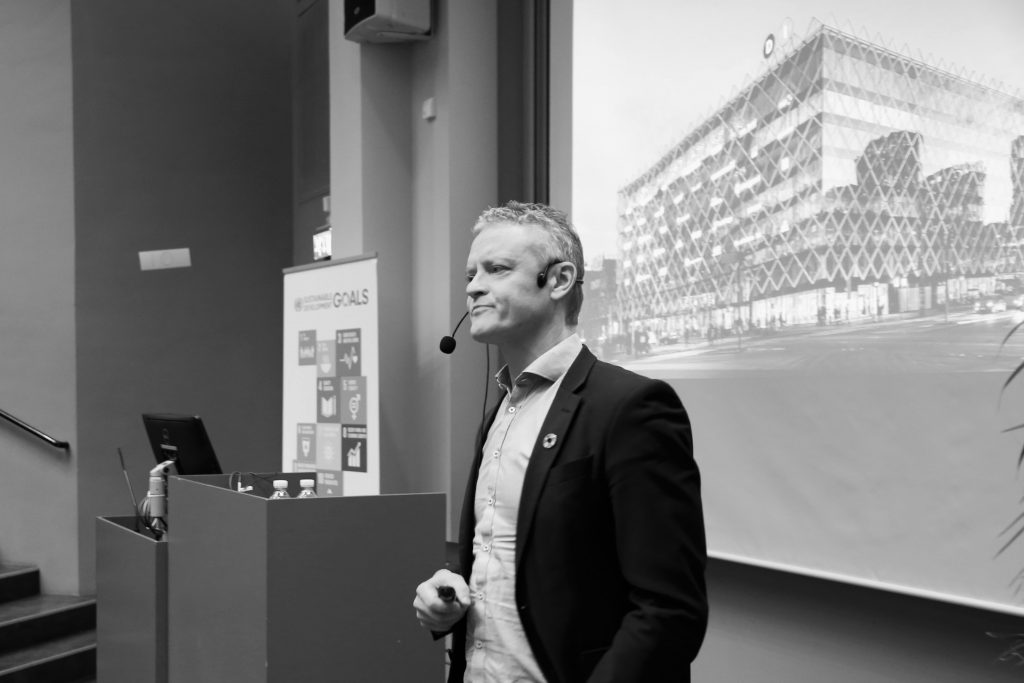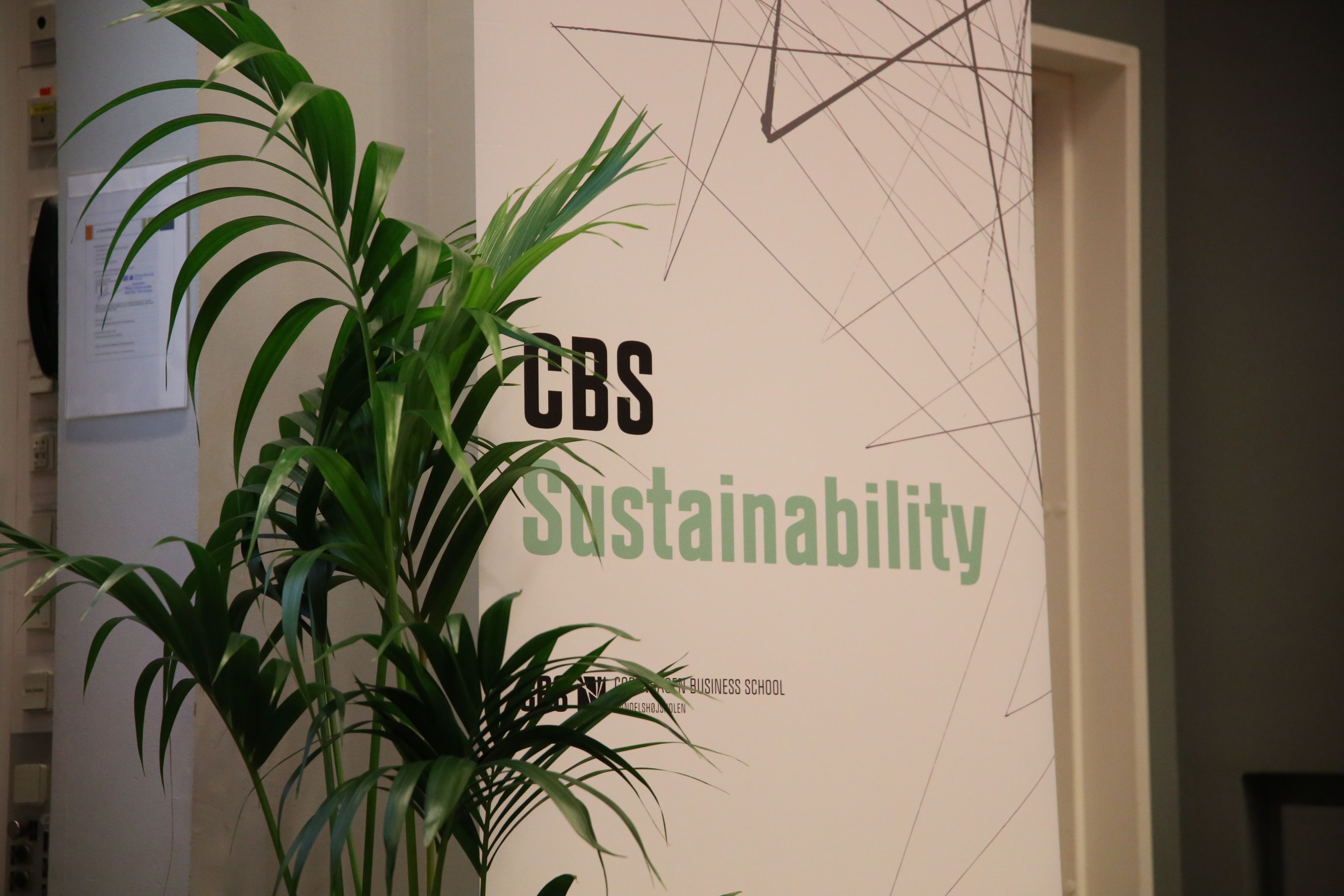This is blog post one of two throwbacks providing key insights from the speakers.
By Oliver Laier.
On Monday, December 3rd, a new centre was officially launched at Copenhagen Business School’s Management, Society & Communications department (MSC), located in Dalgas Have.

CBS Sustainability
New? Not quite. From 2002-2018, there was cbsCSR, a centre for Corporate Social Responsibility; and for five years starting 2011, the Business in Society (BiS) Sustainability Platform. Insofar the launch was more the rebirth of the phoenix than something completely new. The “masses of success” from the two mentioned formats are now continued and expanded in a new suit that acknowledges the plethora of themes and issues under Sustainability, which have long gone beyond merely corporate aspects.

Research and teaching will of course remain the core features of the centre. But CBS Sustainability is also a platform. In this function, it is going to focus on outreach and inreach also, as Steen Vallentin (lecturer and director of the centre, see photo) explained in his opening talk to the event.
CBS Sustainabilitiy’s focus areas:
- Corporate social responsibility
- Government and governance of responsible business
- Behavioural public policy
- Sustainable consumption
- Sustainable development
- Social innovation/ entrepreneurship
- Corporate communication
- Business and human rights
The new centre is precisely about research beyond corporate social responsibility, and rather about working with a broader sustainability agenda. It is about defining both solutions and problems, and to find critical and constructive approaches. CBS Sustainability will be focal point for resources at CBS and outside, but at the same time platform for dialogue, connection and coordination in the diversified field which now ranges from governance across behavioural science to human rights.
Being sustainable, or becoming less unsustainable?
Henrik Schramm Rasmussen from Danish Industy (aka. Dansk Industri or simply: DI) joined as a speaker from the business world. Representing DI, he had an unmistakable notion of the sustainability theme and the global goals in particular: the UN SDGs as business driver. They bare the capacity to offer a growth strategy including market opportunities, drive innovation and are therefore linked to economic growth.

The global development goals are per definition common, since we share the planet; and although they are not exactly written in business lingo, they are clearly formulated, underpinned by specific targets and come with a network offering advice and inspiration.
Companies should engage for several reasons Henrik claims: firms can harvest new market opportunities, attract workforce, brand and license themselves to operate in sustainable business. Needless to say, this is no walk in the park, neither for small, nor for large or established companies. DI has therefore launched a page (in Danish), introducing the goals to firms and explaining how they can strengthen a company by providing guidance and exemplary cases. With member companies covering the most diverse fields, from architecture, over production, to consumer goods to event management (yes, I refer to Roskilde Festival!), there is already a rich collection of inspiring cases.
There is a shift going on among the businesses: from rather passive, preventive and risk reducing compliance, to active and courageous creation of business opportunities and development. The new way involves customers and partners, R&D, sales and communication, but of course also risk. However, ambitious goals can also foster innovation and competitive power – and this is what to aim for.
Henrik’s key take-aways:
- SDGs are about innovation and new business models.
- Sustainability must be owned by top leadership, not compliance managers!
- It’s about innovation, sale and a rethinking of companies’ purpose.
- Sustainability starts with a bold mission statement about the company’s contribution to a sustainable world.
